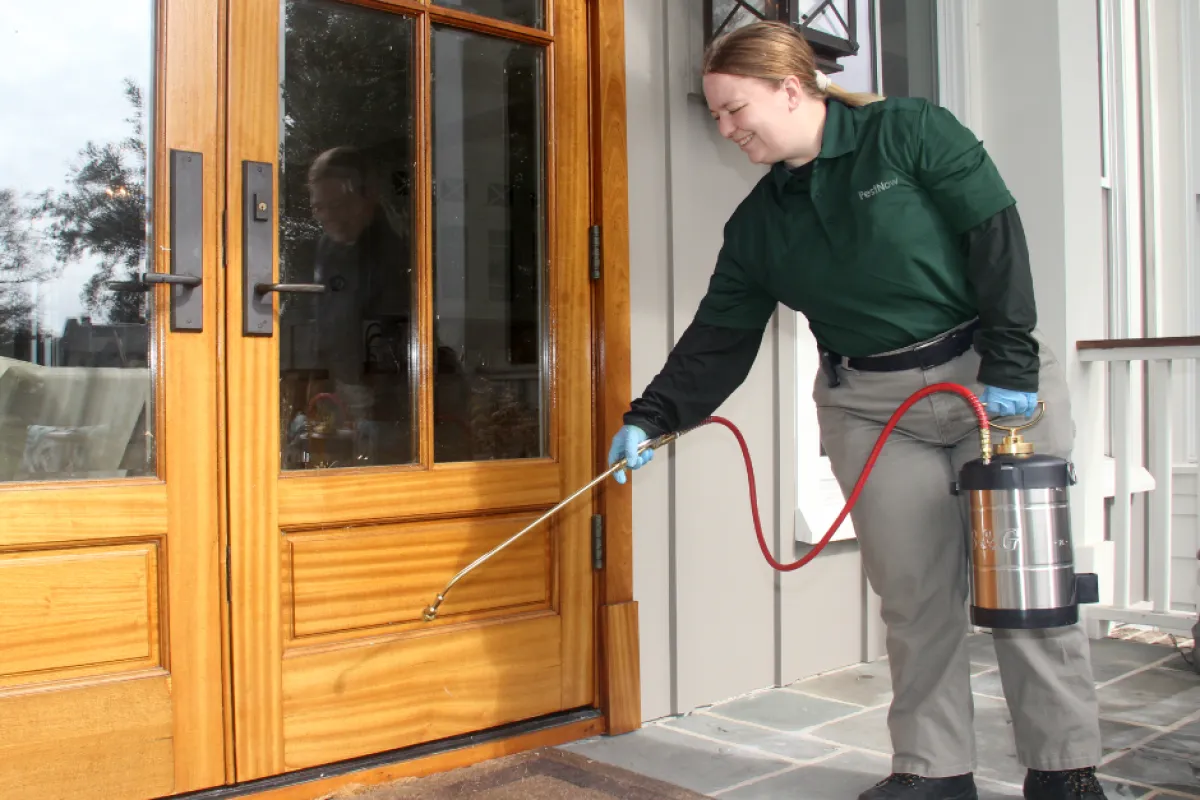A1 Bed Bug Exterminator Charlotte - Specialized Bed Bug Removal
A1 Bed Bug Exterminator Charlotte - Specialized Bed Bug Removal
Blog Article
Bed Bug Therapy Failure: Comparing Chemical Vs. Non-Chemical Solutions
In the world of bug control, particularly when handling the persistent concern of bed bugs, the selection in between chemical and non-chemical therapy services can be a pivotal one. Both techniques provide distinct benefits and drawbacks, affecting elements such as performance, safety factors to consider, and general price. By taking a look at the nuanced details of each approach, a more clear understanding of which course to go after in dealing with a bed bug invasion can be achieved.
Performance of Chemical Treatments
Chemical treatments for bed insect infestations have been extensively recognized for their quick and potent effectiveness in getting rid of these parasites. When taking into consideration the effectiveness of chemical therapies, it is crucial to comprehend that they can give a fast and thorough solution to a bed pest problem. Expert exterminators typically count on insecticides to target bed insects at numerous phases of their life cycle, including adults, eggs, and nymphs. These chemicals normally work by interfering with the bed pests' nervous system, resulting in paralysis and eventual fatality.
In addition, chemical therapies have the advantage of offering residual effects, meaning that they can remain to remove bed bugs even after the initial application. This recurring activity is especially advantageous in combating any type of prospective re-infestations. Additionally, the quick activity of chemical treatments can bring alleviation to individuals dealing with severe bed pest problems, allowing them to restore control of their living rooms rapidly.
Security Interest In Chemical Solutions
When making use of chemical services for bed bug therapy is guaranteeing the safety and security of occupants and the atmosphere,One critical facet that needs mindful factor to consider. While chemical treatments can be efficient in getting rid of bed insects, they may position dangers otherwise handled correctly. Among the key safety concerns with chemical solutions is the potential injury they can create to human health. Exposure to specific chemicals used in bed insect treatments can cause respiratory system concerns, skin irritation, or other negative responses, particularly in people with pre-existing problems or level of sensitivities. In addition, incorrect application or dosage of chemical pesticides can lead to toxic residues remaining in the treated area, positioning lasting health risks to occupants.
In addition, the ecological effect of chemical remedies is one more substantial consideration. Some chemicals utilized in bed insect therapies might be unsafe to helpful bugs, wildlife, and ecosystems if they seep into the soil or water supply. It is important to use chemical therapies deliberately, adhering to security standards, and considering less toxic options to mitigate these dangers and ensure the effective and secure monitoring of bed pest problems.
Benefits of Non-Chemical Techniques
Taking into consideration the potential security worries and environmental influence connected with chemical remedies for bed bug therapy, checking out non-chemical techniques offers a promising alternative with several distinct advantages. Non-chemical approaches use a safer alternative for households, specifically those with children, people, or animals sensitive to harsh chemicals. These approaches remove the threats of direct exposure to poisonous compounds, minimizing the potential for damaging health and wellness results. Moreover, non-chemical therapies are eco-friendly, as they do not add to air or water contamination, making them a lasting selection for parasite control.
Additionally, non-chemical remedies can be efficient in targeting bed insects, including hard-to-reach A1 exterminator charlotte nc areas where chemical therapies may not permeate - A1 charlotte pest control companies. Methods such as heat treatment, vacuuming, vapor cleaning, and cushion encasements supply thorough obliteration without the use of dangerous chemicals.
Limitations of Non-Chemical Treatments

Furthermore, non-chemical treatments frequently call for several applications to achieve effective eradication. This can be lengthy and might not always assure total elimination of all bed pests and their eggs, particularly in hard-to-reach or hidden places.
Moreover, the success of non-chemical treatments heavily depends on proper execution and thoroughness, which can be challenging for people without expert competence. Inadequate application of non-chemical techniques may lead to insufficient eradication, leading to consistent problems and the requirement for added treatments.
Therefore, while non-chemical therapies have their advantages, it is important to acknowledge these restrictions and consider them when establishing the most reliable method for handling bed pest infestations.
Expense Comparison: Chemical Vs. Non-Chemical Options
Given the limitations linked with non-chemical therapies, a necessary element to examine in the context of bed insect management is the price contrast between chemical and non-chemical choices. In contrast, non-chemical treatments like warmth therapy or steam can be more expensive, with costs varying from $1,000 to $6,000 for an entire home. While the first expense of chemical treatments might appear lower, multiple therapies may be called for to completely remove the invasion, possibly boosting the overall price.
Final Thought

Considering the possible security problems and ecological effect associated with chemical options for bed insect therapy, checking out non-chemical strategies provides a promising choice with a number of distinctive benefits.Offered the limitations linked with non-chemical therapies, a vital facet to examine in the context of bed bug administration is the cost contrast in between chemical and non-chemical choices. In comparison, non-chemical treatments like warmth therapy or steam can be extra expensive, with expenses ranging from $1,000 to $6,000 for an entire home. While the first expense of chemical treatments may appear lower, several therapies may be called for to fully remove the infestation, potentially raising the overall expense.In conclusion, when contrasting chemical and non-chemical bed pest treatment choices, it is crucial to think about performance, safety, advantages, constraints, and cost.
Report this page